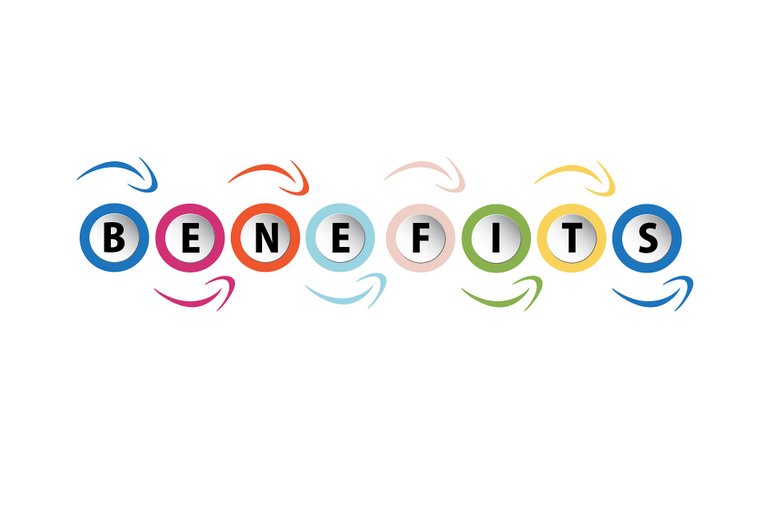Time to Learn: An indepth review of Centralized exchanges

What are Centralized Exchanges (CEXs)?
Centralized exchanges are trading platforms operated by a single individual or organization. The most well-known example of this is Binance and Coinbase. Centralized exchanges are easy to use, accept fiat currencies, and have more volume and liquidity than DEXs. They also have more sophisticated interfaces but primarily trade in cryptocurrency pairs. You can only exchange one type of Cryptocurrency for another on these platforms. So, in summary, Centralized exchanges (CEXs) are run by a single entity.

Some of the benefits of Centralized exchanges are that:
- Centralized exchanges provide a much more sophisticated interface; therefore, it is easy to use. Suppose a user has no technical skill or knowledge about how the blockchain works. In that case, it is easy to jump on centralized exchanges and start trading within minutes.
- Centralized exchanges also offer fiat onramps, which allow users to purchase cryptocurrencies with fiat currencies like USD or EUR through bank transfers.
- The selection of coins available for trade is usually much more than decentralized exchanges.
- Most notably, liquidity is much higher in centralized exchanges. When you buy or sell Cryptocurrency on a centralized exchange, there are always buyers and sellers available at the market price (unlike decentralized exchanges).
- There are some additional features that only centralized exchanges have as well. These include trading tools such as stop losses and limit orders, advanced automated trading bots, margin trading, etc. All these features help traders make more money from their trades by being able to execute faster and know when to close out positions which lead to losses.
- In addition, transactions between user wallets happen very quickly compared to decentralized exchanges. They don't need to wait for blocks to get mined into the blockchain before users can see the result of their trades (the process takes only milliseconds with centralized exchange). Therefore, if you are day-trading Cryptocurrency frequently throughout the day, then a centralized exchange will be most suitable for you. It gives you much faster access to your funds than a decentralized exchange.
- Lastly but not the least important aspect of CEX is regulation and insurance protection, which allows you to rest at ease knowing that your assets will be safe even if something ever goes wrong such as a hack attack happens (which has already happened many times, unfortunately)
.jpg)
My favorite Centralized exchange
Binance is my favorite centralized exchange. Binance is the largest centralized exchange by trading volume in the world. The exchange has its coin called BNB, and it also has its stable coin called BUSD. The BNB can be used to pay for fees on the exchange and can be bought, sold, and traded with other cryptocurrencies.
Some of the unique features of this exchange that make it stand out in my books are;
- Trading fees on Binance are a flat 0.1 percent, which is very competitive for the industry: Binance flat trading fee of 0.1% made it very competitive compared to other exchanges in the industry. Still, it gets even better if you pay your trading fees with their own token BNB. Binance to charges a low fee on withdrawal, and it varies for each digital currency. For example, BTC has a withdrawal fee of 0.001 BTC when you withdraw BTC from your Binance account to a private wallet or another exchange.
- Fast Transaction: The transaction speed on Binance is also extremely fast as it processes around 1,400,000 orders per second and can handle millions of simultaneous trades. This makes it suitable for novice traders and experienced traders alike looking to trade via a reliable exchange that will not go offline when making their trades (which is unfortunately quite common in this market).
- The platform is quick and offers good customer service: The Binance customer support responds quickly and efficiently to any customer issues, providing good resolution.
- The platform offers an excellent user experience and intuitive design, perfect for beginners entering the crypto world.
- Binance supports various languages for all users: Binance is an exchange with a strong community of uses. Binance supports multiple languages so that everyone can use the Binance platform worldwide.
- Binance also allows you to change the platform's theme depending on your mood: A common complaint among traders is that they get headaches from trading for too long. At the same time staring at the computer's screen for too long has consequences. The Binance user-friendly interface helps with that. There are three themes in Binance: light, dark and warm. The light theme looks just like any standard website and is excellent if you're one of those who would prefer to have a bright screen than a dimly lit one. The dark theme is recommended for night owls because it provides minimal eye strain during night trading sessions. The third option would be the warm theme, which is my favorite because it is soothing and easy on the eyes. However, a night mode option also works well if you prefer a not-so-bright screen when trading at night.
In summary, Binance is my go-to platform for trading cryptocurrency. It offers a wide range of features and is easy to use. I like to trade between many different cryptocurrencies on the same platform. Customer service has always been beneficial when needed. There are plenty of resources in tutorials, making it easier for new users to learn how to use the platform quickly
The Only thing that I would have loved to change is the listing of new tokens on the Binance platform, but I will not change it, and the reason is that they run a lot of security checks on tokens/ coins before listing. This reason alone makes it hard for coins listed on Binance to rug as proper checks have been done.

When choosing a centralized exchange to trade your crypto assets, there are a few things to keep an eye out for:
What type of digital assets (cryptocurrencies) do they trade?
How do they store those assets?
What is their KYC policy (know your customer)?
What are the fees for depositing and withdrawing funds? Trading fees? Other fees?
What is the ownership structure of the company that owns the exchange? Is it publicly listed or privately held? Who will benefit from any future success of this crypto exchange business? Who owns most of its shares or stock units? Who does it report to, if anyone (e.g., banks report to BIS, FED, and so on)? Are you dealing with a publicly listed company or a private limited company? This information should be readily available on their website and in public financial statements. If this information is not available, I would suggest avoiding them until they become more transparent about who they are and who owns them. Public companies can also be held accountable by shareholders/stakeholders since they have some form of ownership over how the business operates and where it decides to focus its efforts towards moving forward into the future (hopefully with profits). At least with public companies, some checks and balances prevent companies like Enron from happening again in recent history. In contrast, anything can happen behind closed doors when private companies operate without transparency.
How secure is this exchange platform you're thinking about using compared to others in terms of preventing hacks or potentially losing all your funds/coins due to negligence/recklessness by management in charge at this company operating an exchange platform and storing these digital assets for users who trust them enough to hold their funds there for safekeeping versus holding these currencies yourself on a wallet device that isn't connected online which would need physical access for hackers or shady individuals working within these centralized exchanges could steal depending

Shortcomings do you see on centralized exchanges?
Centralized exchanges have several shortcomings, including:
- Hackers and other malicious parties have a variety of ways to attack these exchanges. This can result in the loss of users' funds.
- Exchange owners could choose to act viciously, like using user deposits for their purposes or absconding with them altogether.
- Centralized exchanges are highly regulated. As a result, the exchange will require you to provide your personal information and transaction details to government agencies upon request. In some cases, you may not be able to avoid being taxed on your crypto earnings as you would if you were making transactions on a decentralized exchange.
- You do not have complete control over your funds when they're in someone else's hands; centralized exchanges hold the private keys associated with your crypto holdings (since they're trading it). As a result, users are subject to potential seizure or freezing by governments or other organizations that the exchange wants or needs to comply with (following local laws).
Despite this shortcoming by centralized exchanges, User funds remain protected even though they do not have access to our wallet's private keys.
As we mentioned earlier, centralized exchanges are like banks for crypto. If you have a wallet through a centralized exchange, you don't own the private keys. When you set up an account with a centralized exchange, private keys are stored in one of the following ways: offline, also referred to as cold storage, in multiple locations, encrypted, or hidden in micro-dots. Storing your private key might sound risky and insecure, especially if you're storing it on someone else's computer.
Crypto assets listed on centralized exchanges are not kept in a single wallet but stored in the exchange's wallet. Centralized exchanges, unlike decentralized exchanges, typically hold user funds in their hot wallet. Your crypto assets listed on centralized exchanges are not kept in a single wallet but stored in the exchange's wallet. There is, therefore, more risk to using these platforms because if the exchange is hacked or malfunctions, you could lose your assets.
Posted Using LeoFinance Beta